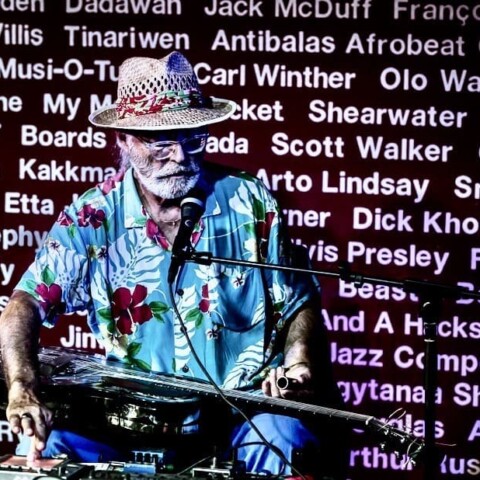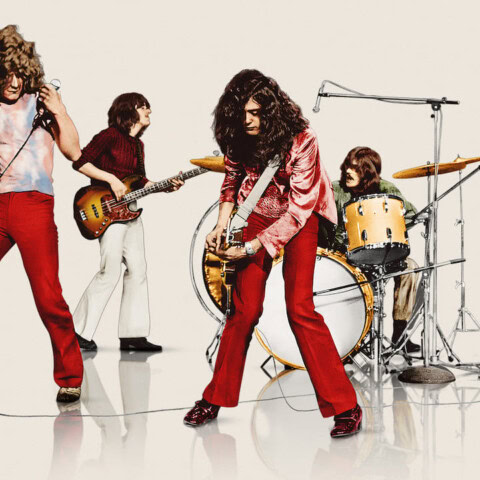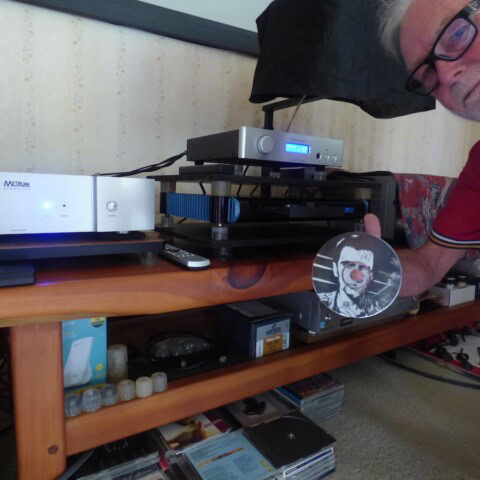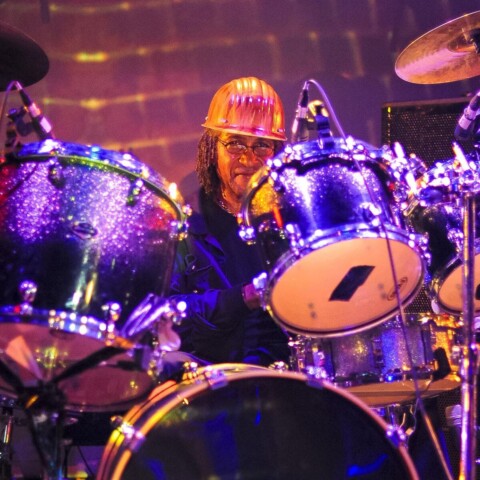Every day in May, to mark NZ Music Month, Gary Steel presents something local from his considerable behind. Personal archive, that is. Today’s surprise item?
I can’t imagine a mass media publication running an article about a freeform jazz ensemble in 2013, but that’s just what the Times (forerunner to the Sunday Star Times) allowed me to do on the 18th of December, 1983. Probably because they didn’t know what the heck I was going on about.
Free Form Phenomenon
 PRIMITIVE ART GROUP’S ordered noise defies simple categorisation. Their existence alone in New Zealand is a phenomenon. And they’ve been blowing, banging and scraping at the flexible form of free jazz for four years now.
PRIMITIVE ART GROUP’S ordered noise defies simple categorisation. Their existence alone in New Zealand is a phenomenon. And they’ve been blowing, banging and scraping at the flexible form of free jazz for four years now.
For Donald Donaldson (double bass), Antony Donaldson (percussion), Dave Watson (guitars), Neil Duncan and Stuart Porter (reeds) there’s no stopping now.
In fact, 1983’s been their best year yet. The group are down to a stabilised unit of tried and true working components, and the exposure given by New York-based jazz pianist Mike Nock in their appearance on his television programme Nock On Jazz earlier this year brought widespread interest to the band.
Instant acclaim is of little interest to PAG, though. To them the hosting and organisation of New Zealand’s first, week-long national festival for improvised music, Off The Deep End, early this year was a giant buzz, and 1984’s follow-up is being planned.
So, what turns them on? Says Stuart: “It’s not experimental music. It’s free-form. It has structures, because we don’t want to jam. We want to present people with organised music.
“What I’m trying to move toward is getting to the point where we can spontaneously compose halfway through a song, to play something that sounds worked-out.”
 And, in fact, in spite of the “spontaneous” and “free” tags, PAG music is highly structured, arranged and disciplined. Strutting their stuff within “jazz” confines comes but naturally, as “jazz has always been the centre of improvised music”, says Stuart.
And, in fact, in spite of the “spontaneous” and “free” tags, PAG music is highly structured, arranged and disciplined. Strutting their stuff within “jazz” confines comes but naturally, as “jazz has always been the centre of improvised music”, says Stuart.
They cite other musical forms such as rock as too inflexible rhythmically, and tell of one particular session at Off The Deep End where a mandolin-player got completely drowned out by amplified instruments.
“It all centres around listening to each other,” says Antony.
They admit that their chosen form is inpenetrable for many. Stuart: “It’s a music you have to be initiated in. You have to hear a lot of it to be able to understand what we’re doing with it.” But, “There’s nothing inherently more complicated about what we do. If you take the analogy of the primitive art group… we’re primitive in that we’re just blowing, we’re like children.”
A major barrier to audience appreciation is that many people have pre-conceived hang-ups about what’s “musical” or not; barriers PAG are all about breaking.
 Antony: “A lot of people think squeaks are squeaks. They don’t realise you can play pure melody using squeaks and scrapes.” Stuart: “Teach yourself clarinet books teach ‘never bite the reed’. But if you bite the reed you get an amazing sound. So you learn to bite the reed, and you develop your own technique for biting the reed… you learn to control these squeaks, and if you’re really fanatical you might even learn to play a scale of squeaks.”
Antony: “A lot of people think squeaks are squeaks. They don’t realise you can play pure melody using squeaks and scrapes.” Stuart: “Teach yourself clarinet books teach ‘never bite the reed’. But if you bite the reed you get an amazing sound. So you learn to bite the reed, and you develop your own technique for biting the reed… you learn to control these squeaks, and if you’re really fanatical you might even learn to play a scale of squeaks.”
PAG have chosen and defined their difficult path, but 1984 already looks positive. They ended 1983 with two dates at Wellington’s Cricketers last Monday and Tuesday and are looking forward to the Christchurch Arts Festival in March, and possibly performances in other cities, not to forget the next Off The Deep End.
From there, the possibilities are only limited in terms of commerce. GARY STEEL
Note from the author: Of course these guys are still around in various forms and shapes, and have gone on to do amazing things. What can I say? Long may they blow!
* Don’t forget to check out www.audioculture.co.nz after May 31, where you’ll find a vast repository of NZ music history.














